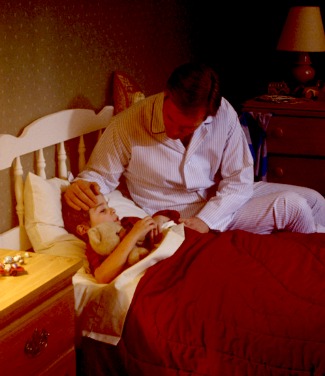By Robert Kornitzer
Co-parenting following a divorce (or following the split-up of a non-married couple) presents unique challenges to both parents. It also poses unique challenges to third parties like doctors or teachers who are involved in the parents’ lives. The problems that are created may on their surface appear to be insignificant or even trivial, but they belie the complex set of relationships and sometimes frustrating administration of co-parenting that is created after a divorce.  With statistics remaining consistent that nearly one-half of all marriages end in divorce, examples such as the situation below that I have been forced to address in my practice as a matrimonial law attorney are not uncommon.
With statistics remaining consistent that nearly one-half of all marriages end in divorce, examples such as the situation below that I have been forced to address in my practice as a matrimonial law attorney are not uncommon.
Imagine the following scenario: Parents are divorced. They share joint legal custody. Mom is the “Parent of Primary Residence” and dad is the “Parent of Alternate Residence.” They share time with the child 60/40. Both are very involved in the child’s life and each takes the child to medical appointments when it falls on their respective days. Their five-year-old son was recently discharged from the emergency room after a bout with asthma. He was prescribed medication for daily treatment for asthma and a nebulizer is needed. The medication and the nebulizer carry with them a heavy price tag if medical insurance will not pick up the costs. One more fact: these parents do not “play well” with each other. They rarely communicate and neither will go out of their ways to assist the other.
The problems that surface immediately are the following: Beginning with the prescriptions for medication and the nebulizer, only one set of medications and medical equipment is prescribed. The mom tells dad that since their son is with her more often, she wants to keep the medication and equipment at her house. She is not willing to transport the equipment and medication back and forth to dad’s home. Since the transfer of custody between the parents takes place via pickup from school, there rarely is a direct physical transfer of the son between parents and hence there is no easy transfer of medication/equipment.
Dad refuses to run back and forth to mom’s home for the daily medication or the nebulizer. Dad is frustrated as he does not have the asthma medication or equipment. He contacts the children’s pediatrician, who now must be involved in preparing a second set of prescriptions.
However, the insurance company will not agree to cover the second set of prescriptions, as they deem duplicative prescriptions to be medically unnecessary. Dad is now forced to pay $500 per month for the meds and wants to file a motion with the court requiring mom to contribute to the costs. Alternatively, in the same scenario, dad agrees to borrow the equipment from mom. He “borrows” the equipment and predictably refuses to return it; telling mom to go buy her own. He also rushes to the pediatrician’s office to pick up the new prescriptions as the old ones run out. Mom is now ready to file her own motion.
Both parties turn in frustration to their son’s pediatrician, who they demand should attempt to convince the insurance company that two sets of all medications and equipment are needed for these parents. The pediatrician does not want to be involved in the parents’ dispute and does not want to devote office staff to fighting with the insurance company. Predictably, the child’s school is now also involved, since the child had an asthma attack at school and (take your pick) the medication and/or the nebulizer was not available through the parent who had the child that day.
The logistics of co-parenting is a demanding and often frustrating endeavor, as the above illustrates. An outsider can dismissively look at the above scenario and simply determine that this is an example of two parents that need to grow up themselves. However, the raw emotion and frustration that attaches to raising a child in two homes following a broken relationship between the parents will often result in a relatively simply-looking problem mushrooming into a mini-crisis.
When third parties become involved, the crisis will not always be in the parents’ control to end. For instance, in the above situation, once the child had an asthma attack at school and the parents did not make the medication available, the school may have an obligation to notify the state’s child protective services regarding the apparent negligence of the parents.
In their hearts, both parents know that each of them has the power and the obligation to act in their child’s best interests. They both know that each/both could have acted to resolve the problem but whether out of frustration with the other or whether out of spite towards the other, they did not sit down and “co-parent”. As someone whose practice is devoted exclusively to family law, I encourage clients to learn how to deal with these types of issues that are certain to arise frequently post-divorce. Joint therapy or sites like My Divorce Pal can help give the insight of solving co-parenting problems as opposed to perpetuating them. Or these parents can pay me to fight over which parent will be court-ordered to pay for the second nebulizer…
![]()
Robert Kornitzer is a partner at the law firm of Pashman Stein and the Chair of its Family Law Department. His practice focuses on all aspects of family law including divorce litigation, mediation, arbitration, post-judgment litigation, custody, relocation, domestic violence, premarital agreements, assets protection agreements, grandparents rights, spousal and child support. Mr. Kornitzer can be reached at 201-488-8200 or at rkornitzer@pashmanstein.com.
Photo Credit: 2014© www.clipart.com